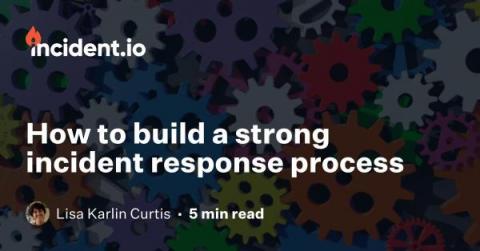Operations | Monitoring | ITSM | DevOps | Cloud
March 2022
How to build a strong incident response process
When building an incident response process, it’s easy to get overwhelmed by all the moving parts. Less is more: focus first on building solid foundations that you can develop over time. Here are three things we think form a key part of a strong process. I’d recommend taking these one at a time, introducing incident response throughout your organisation. Just being honest: we’re a startup selling incident management software.
4 principles for hiring our first 50 people
As an early stage company, one of our biggest priorities is hiring. In fact, we have two company goals this year and one of them is.
What's a fair compensation for being on-call?
For the vast majority of organisations, it’s necessary to have some form of round the clock cover to support the business. Whilst it’s most commonly a concern for engineering, it’s increasingly common to have folks from various disciplines available out-of-hours. Irrespective of role, compensating people fairly is an important factor of running a healthy and effective on-call system.
A B2B sales stack from Seed to Series A
I joined incident.io recently to lead Sales, after having set up my own company. In both startups, one of the first questions I’ve landed on was: “What sales tools should we use as we scale?”. In this post, I’ll walk through our sales stack, and by extension, what I think most B2B SaaS startups can get away using when they have less than ~100 employees.
Rolling out Roles
We’ve been pretty lucky at incident.io to be able to avoid dealing with more complex authentication issues for quite a while, because we piggy-back on Slack to know who you are and which organisation you work in. Whole companies have been built around doing authentication and user profiles really well, so it was pretty neat to be able to avoid doing most of that work for so long!







